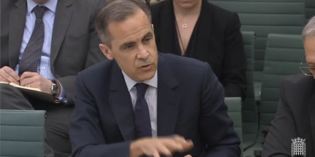
How to maintain high ethical standards in local government: a perspective on the Committee on Standards in Public Life’s review so far
Colin Copus offers his perspective on some of the evidence heard so far by the Committee on Standards in Public Life’s review into ethical standards in local government. He argues that it is a difficult task to balance the issues at stake in refining the current system. There are also important arguments surrounding whether or not to nationalise or localise standards in local government. But the work of the Committee is vital if we are to maintain high standards of ethical behaviour in local government.

Book Review | The Presidency of Barack Obama: A First Historical Assessment edited by Julian Zelizer
With The Presidency of Barack Obama: A First Historical Assessment, editor Julian Zelizer brings together contributors to reflect on different aspects of the Obama administration, from social, economic and legal issues to foreign policy. Jonny Hall explores how the volume grapples particularly with the themes (and frustrations) of Tea Party obstructionism, Obama’s failure to live up to the expectations established by his 2008 campaign and the potential impact of the Trump presidency on his predecessor’s legacy.

‘New poll suggests…’: How to tell when public opinion has really changed
Every day we are being presented with new opinion polls on various social and political issues, but do these really represent public attitudes? Using a statistical method called bootstrapping to estimate sampling variance, Patrick Sturgis and Jouni Kuha explain how such an approach can improve the quality of debate about UK public opinion.

Does democratic discontent foster support for challenger parties?
Established parties across Europe are being challenged by the growth in new parties on the left and right. To assess the extent to which support for challenger parties is a result of dissatisfaction with existing democratic practices, Enrique Hernández has developed a model to distinguish different forms of democratic discontent. He finds that the specific focus of a voter’s democratic discontent shapes their support for these parties, and that this varies between left- and right-wing challenger parties.

Why it’s not just about the outcome: citizens also care about democratic decision-making
A well-known claim for citizens’ involvement in politics is that, when things are going well, they care little about participating in decision-making processes. Michael A. Strebel, Daniel Kübler and Frank Marcinkowski test this claim, and find that, in fact, democratic participation and transparency matter for citizens too, independently of the specific policy outcome.

Making a 21st century constitution: the rules we have established for democracies are now outdated
Democratic constitutions are unfit for purpose, with governments facing increased pressures from populists and distrust from citizens. The only way to truly solve these problems is through reform, argues Frank Vibert. He draws on his new book on the topic and sets out the ways in which constitutions should be revitalised.

Why does class affect voting?
Patterns of class voting remain important in many Western European countries, but the drivers of class support for particular parties remains under researched. Peter Egge Langsæther finds that, beyond left-right divides on economic policies, the salience of immigration and environmental policies by class is significant. However, less than half of class allegiance can be explained by these policy congruences, and so it is a subject that requires further research.

Book Review | Striking Women: Struggles and Strategies of South Asian Women Workers from Grunwick to Gate Gourmet by Sundari Anitha and Ruth Pearson
In Striking Women: Struggles and Strategies of South Asian Women Workers from Grunwick to Gate Gourmet, Sundari Anitha and Ruth Pearson offer an in-depth examination of two strikes – the Grunwick strike of 1976–78 and the strike at Gate Gourmet in 2005 – to highlight how South Asian migrant women have contributed to the struggle for workers rights in the UK. Praising the book’s incorporation of the wider social and historical context, Amal Shahid finds this an informative and accessible read for those passionate about the history and sociology of labour, gender and migration studies.

The government’s handling of the Intelligence and Security Committee’s detainee reports reveals worrying tensions between them
The Parliamentary Intelligence and Security Committee (ISC) is due to publish two reports on the UK’s treatment of detainees. Andrew Defty explains how leaks ahead of their publication are part of a concerning breakdown in the relationship between government and the committee, which has implications for the proper democratic oversight of the UK’s intelligence agencies.

How the Treasury Committee has developed since 1997
A close analysis of the Treasury Committee’s recent history shows how it has become a successful example of a House of Commons select committee. It has developed a broad remit for scrutinising high-profile figures and institutions in the financial sector beyond the Treasury department, particularly in the aftermath of the 2008 financial crisis, writes Saskia Rombach.




 Democratic Audit's core funding is provided by the Joseph Rowntree Charitable Trust. Additional funding is provided by the London School of Economics.
Democratic Audit's core funding is provided by the Joseph Rowntree Charitable Trust. Additional funding is provided by the London School of Economics.